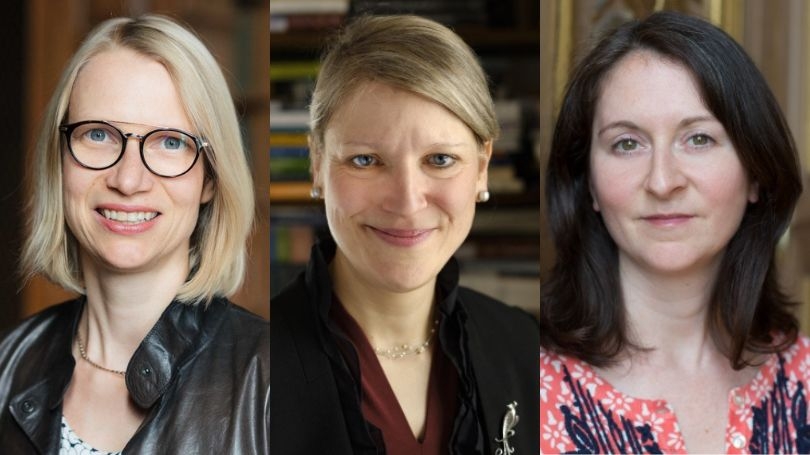
- Undergraduate
- Foreign Study
- Research
- News & Events
- People
Back to Top Nav
Back to Top Nav
Back to Top Nav
Events will explore the 19th century's myriad disruptive technologies—offering insights for our time and broadening the traditional scope of 19th-century studies.
Professors Colleen Glenney Boggs, Katie Hornstein, and Petra McGillen will convene leading scholars on campus next week for a workshop and public panel discussion, How To Do Things with Media: Interventions in 19-Century Studies. Experts in literature, media studies, art history, German, and Slavic languages will explore how new technologies at the time such as the telegraph and photography unsettled aesthetic, social, and cultural hierarchies.
"In our individual research, the three of us ask questions concerning the impact that technology has on perceptions of the world, and a historical moment where new technologies fundamentally changed the way images and texts were encountered by broad reading and viewing publics," says Hornstein, whose scholarly work focuses on 19th-century French art and visual culture. "We all have our own disciplinary approaches to these particular issues, but we wondered what might be gained by thinking collaboratively."
Boggs, who serves as the Parents Distinguished Research Professor in the Humanities, specializes in 19th-century American literature, with particular expertise in the literatures of the American civil war, animal studies, transatlantic studies, and literary theory. In her scholarship, Associate Professor of German Studies Petra McGillen focuses on German literature, media studies, and the history of journalism, including the impact of various media on creative writing processes.
Boggs, Hornstein, and McGillen invited nine scholars from across humanities disciplines to submit short papers that will serve as the basis of the workshop and a subsequent publication. Ultimately, they hope to chart a new interdisciplinary approach to the study of 19-century media technologies.
"We also want to ask a larger methodological question about the way the field of 19th century studies engages with questions of media," Horstein says. "For instance, the field's current focus on historicism and presentism seems largely to crowd out the very mechanisms—that is, the very media—that inform and shape both. What is the importance of then-new media to our understanding of the 19th century, media studies, and our own scholarly practices?"
A public panel discussion on May 16 at 4:30 p.m. in the Wren Room of Sanborn House will feature Richard Menke of the University of Georgia, a specialist in Victorian literature and "new media"; Slavic languages scholar Gabriella Safran of Stanford; and art historian Richard Taws of University College London, an expert in European visual cultures of the 18th and 19th centuries.
Boggs and McGillen oversee an undergraduate research fellowship program at Dartmouth in 19th-century studies. Students will interact with visiting scholars and attend the panel discussion.
This workshop and panel discussion are sponsored by the Leslie Center for the Humanities through its Venn Vision Grants program, which encourages faculty of all ranks to collaborate with Dartmouth colleagues for inspiration, self-education, and enrichment of their individual scholarly projects.